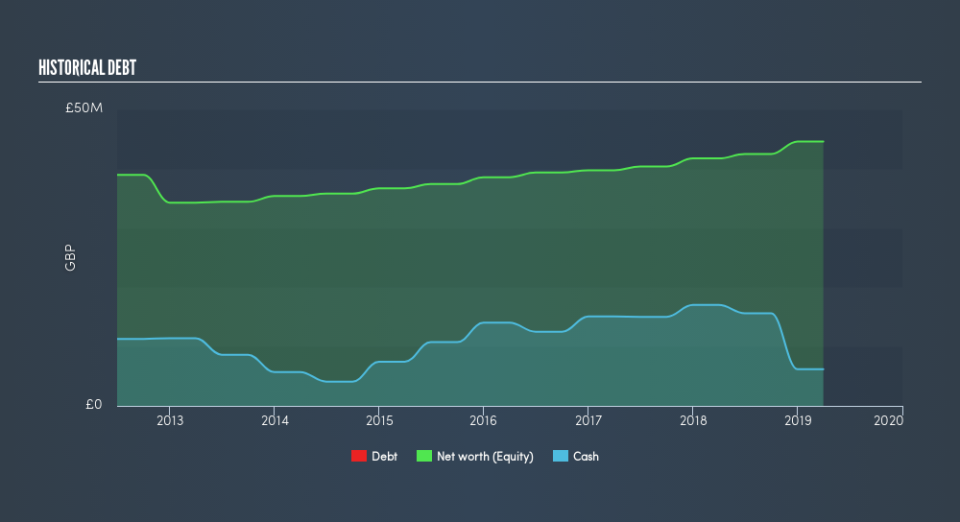What Investors Should Know About FIH group plc's (LON:FIH) Financial Strength

Want to participate in a short research study? Help shape the future of investing tools and you could win a $250 gift card!
FIH group plc (LON:FIH) is a small-cap stock with a market capitalization of UK£40m. While investors primarily focus on the growth potential and competitive landscape of the small-cap companies, they end up ignoring a key aspect, which could be the biggest threat to its existence: its financial health. Why is it important? Evaluating financial health as part of your investment thesis is essential, since poor capital management may bring about bankruptcies, which occur at a higher rate for small-caps. The following basic checks can help you get a picture of the company's balance sheet strength. Nevertheless, potential investors would need to take a closer look, and I recommend you dig deeper yourself into FIH here.
FIH’s Debt (And Cash Flows)
FIH's debt levels surged from UK£8.5m to UK£18m over the last 12 months , which includes long-term debt. With this rise in debt, FIH currently has UK£6.2m remaining in cash and short-term investments , ready to be used for running the business. Moreover, FIH has generated UK£3.1m in operating cash flow during the same period of time, leading to an operating cash to total debt ratio of 17%, signalling that FIH’s current level of operating cash is not high enough to cover debt.
Can FIH meet its short-term obligations with the cash in hand?
With current liabilities at UK£21m, it seems that the business arguably has a rather low level of current assets relative its obligations, with the current ratio last standing at 0.99x. The current ratio is calculated by dividing current assets by current liabilities.
Does FIH face the risk of succumbing to its debt-load?
With a debt-to-equity ratio of 40%, FIH can be considered as an above-average leveraged company. This is a bit unusual for a small-cap stock, since they generally have a harder time borrowing than large more established companies. No matter how high the company’s debt, if it can easily cover the interest payments, it’s considered to be efficient with its use of excess leverage. A company generating earnings before interest and tax (EBIT) at least three times its net interest payments is considered financially sound. In FIH's case, the ratio of 15.03x suggests that interest is comfortably covered, which means that lenders may be inclined to lend more money to the company, as it is seen as safe in terms of payback.
Next Steps:
Although FIH’s debt level is towards the higher end of the spectrum, its cash flow coverage seems adequate to meet debt obligations which means its debt is being efficiently utilised. But, its lack of liquidity raises questions over current asset management practices for the small-cap. I admit this is a fairly basic analysis for FIH's financial health. Other important fundamentals need to be considered alongside. I recommend you continue to research FIH group to get a better picture of the stock by looking at:
Future Outlook: What are well-informed industry analysts predicting for FIH’s future growth? Take a look at our free research report of analyst consensus for FIH’s outlook.
Historical Performance: What has FIH's returns been like over the past? Go into more detail in the past track record analysis and take a look at the free visual representations of our analysis for more clarity.
Other High-Performing Stocks: Are there other stocks that provide better prospects with proven track records? Explore our free list of these great stocks here.
We aim to bring you long-term focused research analysis driven by fundamental data. Note that our analysis may not factor in the latest price-sensitive company announcements or qualitative material.
If you spot an error that warrants correction, please contact the editor at editorial-team@simplywallst.com. This article by Simply Wall St is general in nature. It does not constitute a recommendation to buy or sell any stock, and does not take account of your objectives, or your financial situation. Simply Wall St has no position in the stocks mentioned. Thank you for reading.

